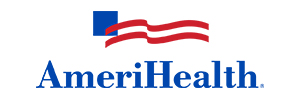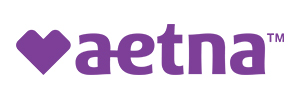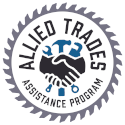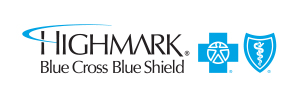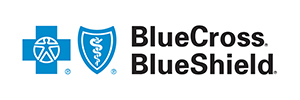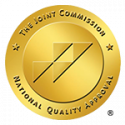Nutrition plays an essential role in addiction recovery by restoring vital nutrients depleted by substance abuse. That’s why when it comes to your three daily meals, picking the right food is key! The perfect diet can give you a head start on rehab and detox, refueling your body and driving up energy levels.Read on to learn how focusing on nutrition can help speed your recovery and strengthen you for all the days to come.
How Nutrients Affect the Body
Food itself can be healing. To understand how nutrition and addiction recovery are intertwined, it’s important to understand how nutrients function in the body.
Six nutrient groups from food are essential, categorized as micronutrients and macronutrients. Macronutrients, such as protein, fat, carbohydrates, and water, are needed in large amounts to maintain optimal health. Micronutrients, including vitamins and minerals, are also important., but required in smaller amounts.
Avoid this Pitfall
After discontinuing the use of drugs and alcohol, it is common for individuals to turn to comfort food such as pizza, burgers, potato chips, sugary snacks, or soda. Junk food may be viewed as an alternative to drugs or alcohol, but it can create an addiction of its own due to the sugar present in the diet. The body can develop dependencies on both substances and food.
How Substance Abuse Use Can Disturb Nutritional Health
Substance abuse can result in a number of broad symptoms, including a lack of the nutrients necessary for good health and recovery. Those who use drugs are likely to experience one or more of these effects.
Loss of appetite: It’s common for substances to suppress appetite or completely take away the user’s urge to eat altogether.
Sub-par eating choices: When someone is under the influence, they are more susceptible to poor decisions, often seeking out pleasure-saturated but nutrient-poor foods such as fast food or sweets.
Hypoglycemia: Lack of a balanced diet can lead to low blood sugar, which causes other problems.
Damage to the Organs: Even if someone abusing substances were to eat a balanced diet, many drugs directly wreak havoc on the organs. This means your body will be unable to properly break down and process nutrients.
1. Water, Water, and More Water
Water is the most vital part of recovery during detox. It provides hydration and oxygen to the body, healing it and boosting energy. Consuming as much water as possible in the first few days is recommended, with continued hydration throughout treatment. Water does not provide any nutrients but it oxygenates the body, helping you gain back your energy.
The body can withstand malnutrition for a considerable amount of time, however dehydration can be detrimental and life-threatening when not addressed. Water accounts for roughly 60% of the body composition and performs significant roles within bodily functions such as brain activity, mood regulation, toxin removal, and nutrient transportation.
According to the National Academies of Sciences, Engineering, and Medicine, adults should consume 11.5 to 15.5 cups of water daily.
2. Sleep-Aiding Foods
Sleep is essential for recovery since it restores the body and mind and gives an individual the energy they need to focus on their recovery. However, many individuals in recovery struggle with insomnia or other sleep issues, so getting adequate sleep can be difficult. Eating certain foods that are high in specific vitamins and minerals can help promote better sleep and lead to a more successful recovery. Bananas can be beneficial for those recovering from drug and alcohol abuse or addiction due to their tryptophan content, which is important for producing serotonin and regulating sleep. Other foods to try are:
- Poultry (such as turkey)
- Tart cherry juice
- Almonds
3. Energy Boosting Foods
Restoring energy levels following drug or alcohol consumption can be achieved by following a healthy diet, which should include foods that are rich in essential nutrients:
- Leafy vegetables
- Peanuts
- Pistachios
4. Foods that are Restorative for Breathing
If an individual has been smoking crack, cigarettes, marijuana, or heroin in the recent past, their lungs have become weakened. Therefore, oxygen is not entering their body in sufficient amounts. To aid recovery and return lung function to maximum capacity, consider consuming foods that are rich in omega-3s, magnesium, and antioxidants. To help restore the health of one’s lungs, consider foods such as:
- Salmon
- Oatmeal sprinkled with flax seeds
- Berries
- Leafy greens
5. Detoxing Foods
In order to help speed up the detox process and mitigate alcohol withdrawal symptoms, those with a history of heavy drinking can benefit from eating sulfur- and antioxidant-rich foods such as:
- Cabbage
- Garlic
- Lemon
- Beetroot
6. Brain Food
Addiction has a significant effect on the brain, making a balanced diet an essential part of any substance abuse treatment program. Eating a healthy diet can help to improve memory, cognitive functions, and motor skills in recovery.
Drug misuse can stop the body from properly utilizing Tyrosine, an amino acid needed to create proteins. This amino acid is also important in producing brain chemicals, specifically Norepinephrine and Dopamine, which are linked to emotion regulation and cognition. Thus, including more seafood and poultry in one’s diet could be beneficial in boosting tyrosine levels and improving one’s overall mood, mental clarity, and well-being. Include foods in your diet such as:
- Green tea
- Avocados
- Ginger
- Tomatoes
To sum it up, eating a balanced diet is an essential part of recovery. Eating the right foods can help to restore energy levels, reduce cravings, and improve one’s overall well-being. Eating water-rich and nutrient-dense foods that are high in healthy proteins, omega-3s, vitamins, and minerals will aid in detoxing and healing the body.




